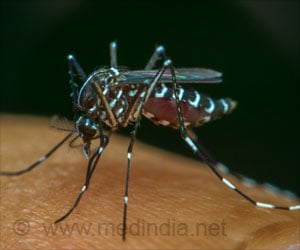Climate change may be promoting the global spread of arboviruses, including dengue, Zika virus, and Chikungunya.
- Climate change is promoting the global spread of arboviruses
- The changing climate is making new areas suitable for arbovirus transmission
- Increased awareness and proactive measures are essential to combat the spread of arboviruses
Understanding Arboviruses and Their Spread
Arboviruses are spread through the bites of infected arthropods. Mosquitoes are the primary vectors of arboviruses, and the Aedes aegypti and Aedes albopictus species are particularly important vectors. These mosquitoes have a wide geographic range and can transmit a variety of arboviruses, including dengue, chikungunya, Zika, and yellow fever viruses. Arboviruses can also be transmitted through blood transfusions, organ transplants, and from mother to child during pregnancy or breastfeeding.Impact of Climate Change on Arbovirus Spread
Climate change has led to an increase in temperature and precipitation, which has extended the geographic range of mosquitoes and increased their breeding cycles. This has resulted in a significant increase in mosquito populations and, consequently, an increase in arbovirus transmission. Higher temperatures also shorten the incubation period of arboviruses in mosquitoes, leading to a shorter time between infection and transmission. This makes it more challenging to control arbovirus outbreaks.Arbovirus Outbreaks Linked to Climate Change
Several arbovirus outbreaks have been linked to climate change in recent years. For example, the 2015-2016 Zika virus outbreak in Brazil was linked to increased temperatures and rainfall. Similarly, the chikungunya virus outbreak in India in 2006 was linked to unusually high temperatures and rainfall. These outbreaks resulted in thousands of cases of illness and deaths, highlighting the urgent need to address climate change and its impact on arbovirus spread.Steps to Mitigate the Impact of Climate Change on Arbovirus Spread
To mitigate the impact of climate change on arbovirus spread, several steps can be taken. These include implementing mosquito control measures such as removing standing water and using insecticides, developing vaccines and antiviral drugs, and investing in climate change mitigation strategies such as reducing greenhouse gas emissions and adapting to the effects of climate change.Climate change is a significant factor in the spread of arboviruses worldwide. As temperatures continue to rise and precipitation patterns change, the geographic range of mosquitoes and arboviruses will likely expand. Urgent action is needed to address climate change and mitigate its impact on arbovirus spread. Failure to do so could result in more frequent and severe arbovirus outbreaks, with devastating consequences for public health.
Source-Medindia












